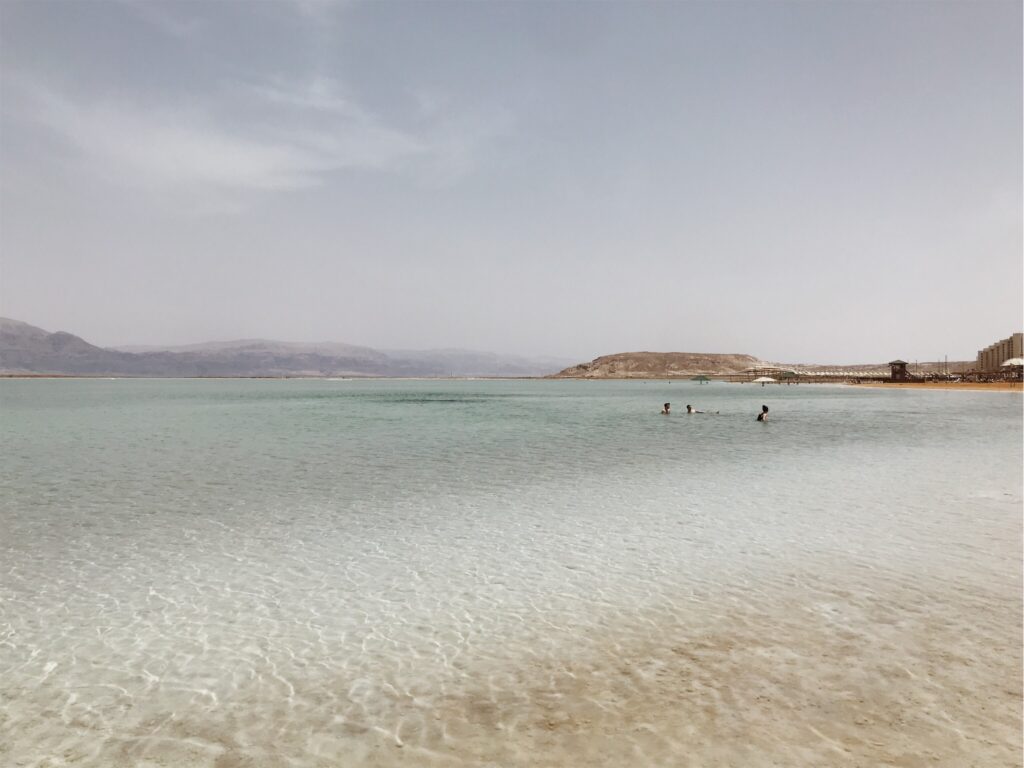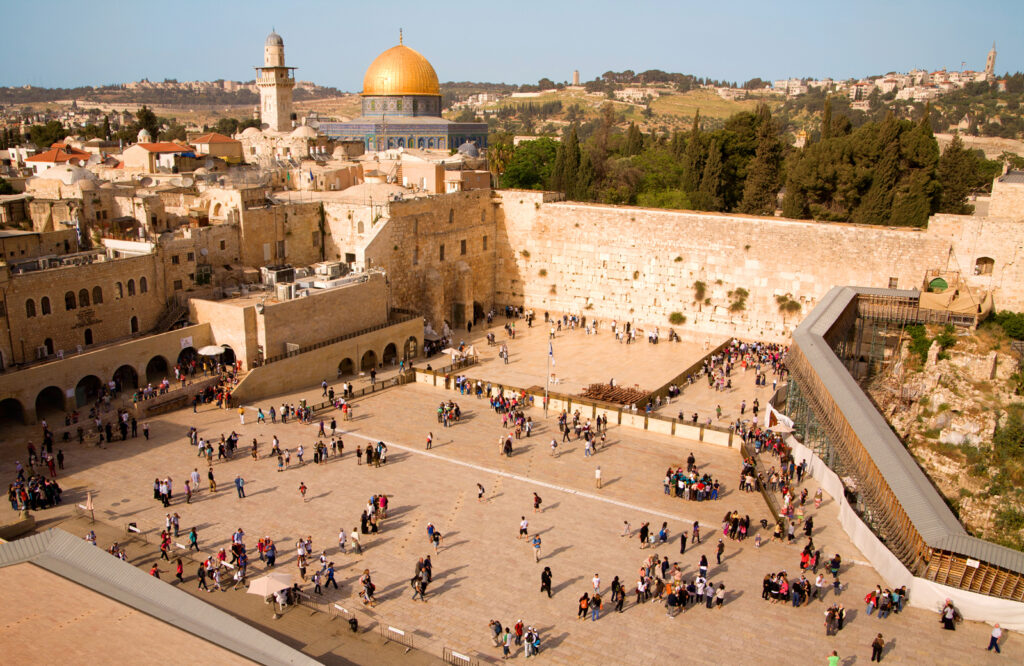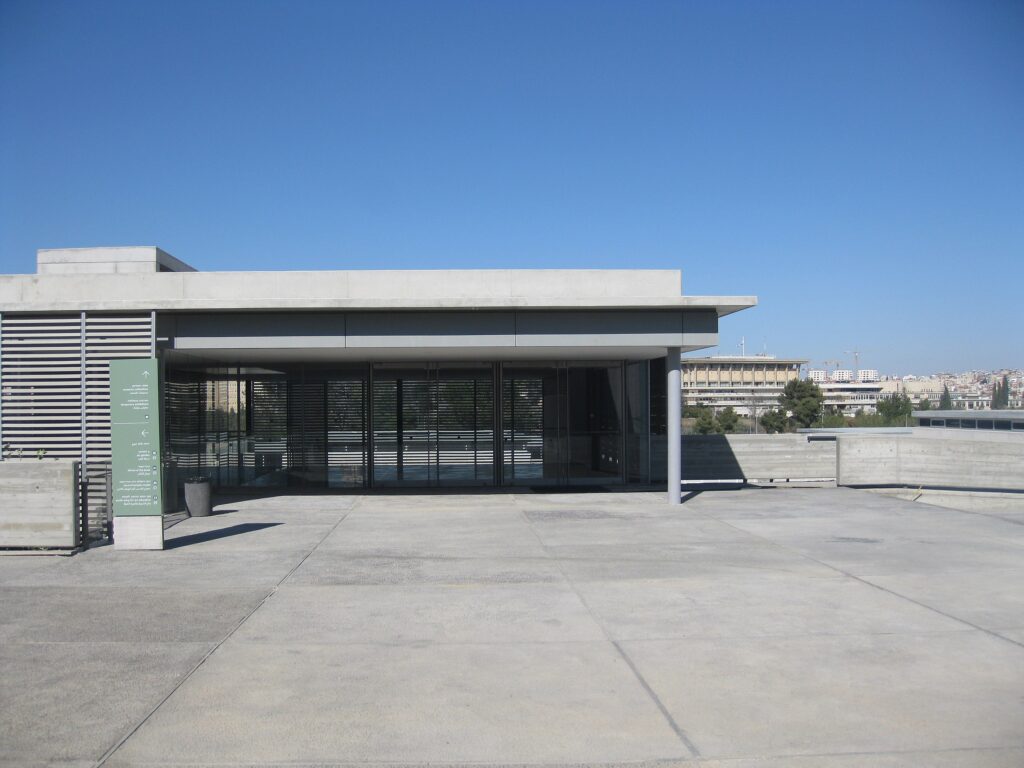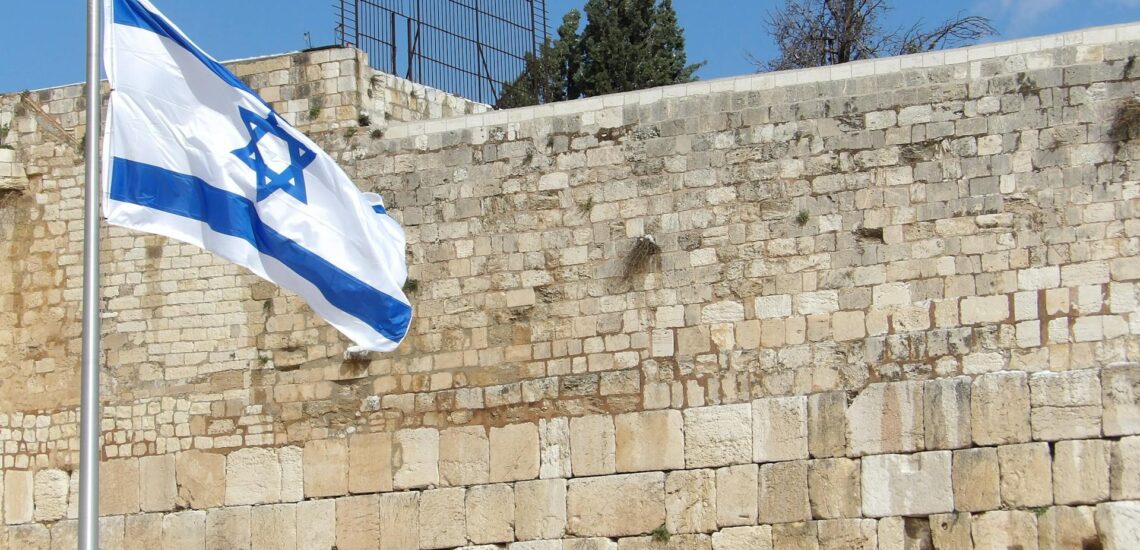Quick facts about Israel:
- Population: Approximately 9 million people.
- Capital: Jerusalem.
- Largest City: Jerusalem.
- Official Languages: Hebrew; Arabic is also widely used.
- Currency: Israeli New Shekel (ILS).
- Government: Unitary parliamentary republic.
- Major Religions: Judaism, with significant Muslim, Christian, and Druze minorities.
- Geography: Located in the Middle East, bordered by Lebanon to the north, Syria to the northeast, Jordan to the east, Egypt to the southwest, and the Mediterranean Sea to the west.
Fact 1: Modern Israel came into being after World War II
Modern Israel was established after World War II, officially becoming a state on May 14, 1948. This followed the United Nations General Assembly’s approval of a partition plan in 1947, which proposed the division of the British Mandate of Palestine into separate Jewish and Arab states. The aftermath of the Holocaust and the persecution of Jews during World War II significantly influenced global support for the creation of a Jewish state.
Upon declaring independence in 1948, Israel was immediately involved in conflict with neighboring Arab states, marking the beginning of the Arab-Israeli War. Despite these challenges, Israel emerged as a sovereign nation, embarking on a journey of state-building, immigration absorption, and economic development.

Fact 2: Israel is home to holy sites for many religions
Israel is home to some of the most significant holy sites for Judaism, Christianity, and Islam, making it a focal point for religious pilgrimages and spiritual significance.
For Judaism, the Western Wall in Jerusalem is the holiest site, as it is the last remnant of the Second Temple. The Temple Mount, also in Jerusalem, holds profound religious importance, being the site of the First and Second Temples.
Christianity reveres Israel for numerous holy sites, particularly in Jerusalem and Bethlehem. The Church of the Holy Sepulchre in Jerusalem is believed to be the site of Jesus Christ’s crucifixion, burial, and resurrection. Bethlehem, the traditional birthplace of Jesus, is home to the Church of the Nativity.
For Islam, the Al-Aqsa Mosque in Jerusalem is the third holiest site after Mecca and Medina. The Dome of the Rock, also on the Temple Mount, is believed to be the location from which the Prophet Muhammad ascended to heaven during the Night Journey.
Fact 3: The Dead Sea is the lowest place on earth
The Dead Sea, located between Israel and Jordan, is the lowest point on Earth’s surface, sitting at about 430 meters (1,411 feet) below sea level. This unique geographical feature is renowned for its extremely high salinity, which is roughly ten times that of typical ocean water. The high salt content creates a buoyancy effect, allowing people to float effortlessly.
In addition to its unique buoyancy, the Dead Sea is known for its therapeutic properties. The mineral-rich mud and waters are believed to offer various health benefits, attracting visitors seeking spa treatments and natural remedies. The area around the Dead Sea also boasts a unique landscape, with dramatic desert scenery and a wealth of archaeological and historical sites.

Fact 4: Israel conserves water resources
Israel is a global leader in water conservation and recycling, utilizing innovative technologies and strategies to manage its limited water resources efficiently. Given its arid climate and scarcity of natural freshwater sources, Israel has developed advanced methods to maximize water use and sustainability.
One of the key strategies Israel employs is the extensive use of drip irrigation, a technology invented in Israel. This method delivers water directly to the roots of plants, significantly reducing water wastage and enhancing agricultural productivity. Drip irrigation has revolutionized agriculture in arid regions and is now used worldwide.
In addition to irrigation advancements, Israel excels in water recycling. The country treats and recycles approximately 85% of its wastewater, using it primarily for agricultural irrigation. This impressive recycling rate is the highest in the world, far surpassing other countries. The treated wastewater provides a reliable and sustainable water source for agriculture, reducing the dependence on freshwater resources.
Fact 5: There are more than 1000 archaeological sites in Jerusalem
Jerusalem, one of the oldest cities in the world, is home to over 1,000 archaeological sites, reflecting its rich and complex history spanning thousands of years. These sites offer invaluable insights into the diverse cultures, religions, and civilizations that have shaped the city over millennia.
Key archaeological highlights include:
- The City of David: This ancient settlement is believed to be the original urban core of Jerusalem, dating back to the Bronze Age. Excavations have uncovered significant artifacts, including remnants of fortifications, water tunnels, and royal palaces.
- The Western Wall: Part of the retaining wall of the Second Temple, the Western Wall is a sacred site for Jews worldwide. Archaeological findings around the Wall and the adjacent Western Wall tunnels provide a deeper understanding of Jerusalem during the Second Temple period.
- The Temple Mount/Haram al-Sharif: This area holds profound significance for Judaism, Christianity, and Islam. Archaeological work here has revealed structures from various periods, including the First and Second Temples, Byzantine, and early Islamic structures.
- The Church of the Holy Sepulchre: Considered by many Christians to be the site of Jesus’ crucifixion, burial, and resurrection, this church stands on a site that has yielded many archaeological treasures from different historical periods.
- The Mount of Olives: This historic site contains ancient Jewish tombs, including those of biblical figures, and has been a burial site for thousands of years.
- The Old City: The entirety of Jerusalem’s Old City, with its numerous quarters (Jewish, Christian, Muslim, and Armenian), is rich with archaeological sites. Each quarter has layers of history that reflect the diverse communities that have lived there.
Note: If you plan to visit the country and travel by car, check if you need an International Driver’s License in Israel to rent and drive a car.

Fact 6: Compulsory military conscription compulsory for men and women
In Israel, military conscription is compulsory for both men and women, reflecting the nation’s need to maintain a strong defense force due to its unique security situation. Men typically serve for 32 months and women for 24 months, starting at the age of 18. While there are some exemptions for medical reasons, religious beliefs, and other personal circumstances, the majority of young Israelis serve in the Israel Defense Forces (IDF).
Military service includes a wide range of roles, from combat positions to technical and support roles, with women actively integrated into many areas, including combat units. After their mandatory service, many Israelis continue to serve in the reserves, participating in annual training and being available for active duty if needed.
Fact 7: Israel has the highest concentration of museums per capita
This impressive density of museums is a testament to the nation’s commitment to preserving and showcasing its diverse cultural narratives and histories.
Jerusalem alone is home to several of these renowned institutions. The Israel Museum, the largest in the country, features extensive collections of archaeology, fine arts, and Jewish artifacts, including the famous Dead Sea Scrolls. Yad Vashem, the World Holocaust Remembrance Center, provides a profound exploration of the Holocaust through its extensive exhibits and memorials.

Fact 8: Israel is the only liberal democracy in the middle east
This political system is characterized by free and fair elections, a robust judicial system, and a vibrant civil society. The Israeli political landscape is notably diverse, with dozens of political parties regularly participating in elections, reflecting a wide range of views and interests within the country.
In the Knesset, Israel’s parliament, these parties span the political spectrum from right to left, and include those representing specific demographics, such as religious groups, Arab citizens, and immigrants. The multiplicity of parties means that coalition governments are the norm, as no single party has historically won an outright majority.
Fact 9: There’s a kosher McDonald’s in Israel
Kosher certification ensures that these McDonald’s locations adhere to Jewish dietary laws, particularly regarding the sourcing and preparation of food. This includes using kosher-certified ingredients, following specific cooking procedures, and maintaining separation of dairy and meat products.
McDonald’s in Israel typically offers a menu that caters to kosher dietary requirements, such as avoiding pork products and ensuring that meat and dairy items are prepared and served separately. This allows observant Jews to enjoy familiar fast-food options while adhering to their religious dietary practices.

Fact 10: Israel has many innovative companies and startups
Israel has garnered global acclaim for its vibrant culture of innovation and entrepreneurship. Despite its small size and geopolitical challenges, the country has cultivated a fertile ground for creativity and technological advancement. This environment has given rise to a diverse array of innovative companies and startups across various sectors, including cybersecurity, biotechnology, artificial intelligence, and agritech.
The ecosystem’s strength lies in its collaborative spirit, where academia, research institutions, and private enterprises work closely together to develop groundbreaking solutions. This synergy has not only fueled technological breakthroughs but also fostered a culture of resilience and adaptability among Israeli entrepreneurs. These qualities are evident in the global impact of Israeli innovations, which have revolutionized industries and garnered investment and partnerships from around the world.

Published June 30, 2024 • 8m to read





